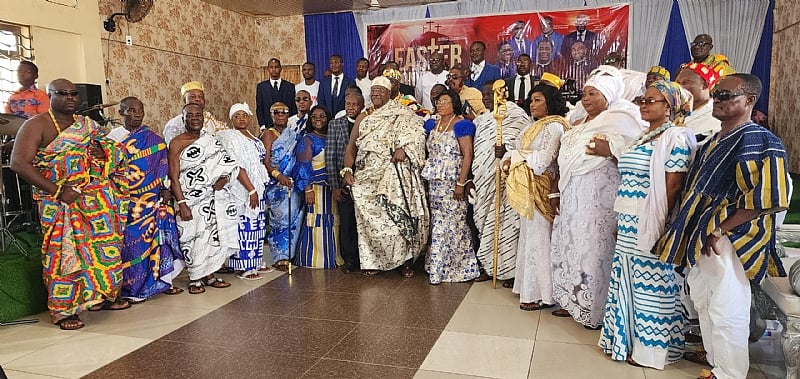The escalating conflict in Bawku, a municipality in Ghana, has sparked urgent calls for national intervention. Daniel Nii Arde Tagoe, a prominent community leader and religious figure, has voiced deep concern over the protracted clashes between the Kusasi and Mamprusi ethnic groups, emphasizing the devastating impact on human lives, property, and the region’s overall development. The recent surge in violence, which began in November 2021, has claimed numerous lives, displacing families and instilling fear throughout the municipality. Mr. Tagoe stressed that the crisis has transcended local boundaries, posing a threat to national security and potentially destabilizing the wider West African sub-region. He urged a collective response, emphasizing the need for all Ghanaians to consider the conflict as a shared burden requiring immediate attention, compassion, and a commitment to finding lasting solutions.
Mr. Tagoe’s appeal extends beyond mere acknowledgment of the problem. He has called upon influential institutions and individuals to actively participate in peacebuilding efforts. Specifically, he urged the Christian Council of Ghana, prominent traditional rulers, Muslim leaders, and civil society organizations to collaborate with government and security agencies in mediating dialogue between the warring factions. He emphasized the moral authority and credibility these leaders possess, positioning them as crucial figures in fostering reconciliation and facilitating a ceasefire. Furthermore, he believes that a concerted effort involving these key stakeholders is essential to achieving lasting peace and preventing the conflict from further destabilizing the region.
The ongoing violence, according to Mr. Tagoe, has far-reaching consequences beyond the immediate loss of life and property. The conflict has triggered a mass exodus of professionals, including teachers, nurses, and other essential service providers, who have fled Bawku in search of safety. This brain drain has created significant gaps in critical sectors such as healthcare and education, undermining years of developmental progress. The absence of these vital services exacerbates the already dire situation, hindering the municipality’s ability to recover and rebuild. Mr. Tagoe warned that without urgent action, the cycle of violence and displacement will continue, further hindering the region’s development and prosperity.
Mr. Tagoe delivered his Easter message, a time symbolizing sacrifice and resurrection, as a poignant reminder of the values needed to heal the fractured community. He appealed to both the Kusasi and Mamprusi communities to embrace forgiveness, dialogue, and mutual respect as pathways to lasting peace. He urged them to prioritize the future of their children and recognize the shared values that bind them as Ghanaians. He emphasized that violence and revenge offer no solutions, only perpetuating the cycle of suffering. Instead, he encouraged a shift towards reconciliation, recognizing that a better future for Bawku can only be built on a foundation of peace and understanding.
Furthermore, Mr. Tagoe challenged the perception of the Bawku conflict as an isolated ethnic or religious issue. He stressed the moral obligation of all Ghanaians to contribute to peacebuilding efforts, underscoring the interconnectedness of communities within the nation. He argued that allowing the conflict to fester unchecked would undermine national unity and development. By advocating for a collective national response, Mr. Tagoe aimed to foster a sense of shared responsibility and encourage a more inclusive approach to conflict resolution. This, he believes, is crucial for preventing future outbreaks of violence and promoting sustainable peace across the country.
Finally, Mr. Tagoe’s message included a direct appeal to the government, urging a shift in strategy from a reliance on military presence to a more proactive approach centered on meaningful dialogue. He also called upon media outlets, religious institutions, and civil society organizations to play a constructive role in advocating for reconciliation and reporting responsibly on peacebuilding initiatives. This multi-faceted approach, he believes, is key to generating sustained momentum towards peace and restoring hope to the beleaguered community of Bawku. He reiterated the fundamental right of the people of Bawku to peace and security, emphasizing the urgency of collective action to prevent further bloodshed.


